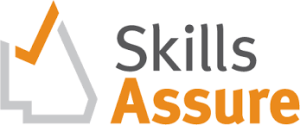
Duration
12 months from course commencement

Delivery
Online
RPL

Entry Requirements
Be an Existing Worker with responsibility for volunteer coordination

Accreditation
This is a nationally recognised course.
Overview
This qualification is appropriate for workers who are responsible for the coordination of volunteers within a program or organisation. Volunteer Coordinators provide ongoing management and support to volunteers and are the main point of contact for volunteers.
This qualification will enhance your work in planning and administering volunteer programs and recruiting and supporting volunteers in the ever-changing environment.
Students develop a range of skills through the course which include:
- Acquiring specialised skills and knowledge in coordinating volunteer programs.
- Developing strong leadership capabilities to manage diverse teams of volunteers.
- Learning strategic planning techniques to design and implement volunteer programs that address real community needs, fostering positive social change and meaningful impact.
- Implementing industry best practice techniques for enriching volunteer worker experiences.
- OnlineThis course is presented through a online format. Students undertake self-paced learning and practical application within the workplace or simulated activities.
Resources and assessments are completed online. Theory assessment includes short answers, essays, project work, self-marking questions and workplace practical evidence. - Recognised Prior Learning (RPL)Recognised Prior Learning is the process that is used to recognise the skills and knowledge you have acquired through personal and work experience – the “University of Life”. The evidence you provide is matched to a complete qualification where possible or alternatively, to part of a qualification.A successful RPL application means that you could receive certification without further study or may be able to fast track through a qualification.
Please contact Volunteering Queensland to organise and individual assessment of our current knowledge and skills.
- Credit Transfer (CT)Students can obtain Credit Transfers for units from this qualification that have been successfully obtained from other Registered training Organisations. Please check your USI transcripts and notify Volunteering Queensland if you have obtained any units that may be relevant to this course.
The course is suitable for workers experienced in working with volunteers in many industry sectors including community work, local government, health, emergency services, sport, recreation, parks, libraries and museums.
The course format reflects real industry processes and outcomes.
The typical completion time of the course is 12 months.
The course is structured to fit in with your working environment, so assessment activities will be drawn from on-the-job activities and experiences.
To complete this qualification, you must demonstrate competency in a total of 11 units.
- Seven (7) core units and four (4) electives.
| CHCCOM002 Use communication to build relationships | Core | ||||||||||
| CHCDIV003 Manage and promote diversity | Core | ||||||||||
| CHCLEG001 Work legally and ethically | Core | ||||||||||
| CHCVOL003 Recruit, induct and support volunteers | Core | ||||||||||
| CHCVOL004 Manage volunteer workforce development |
Core | ||||||||||
| HLTWHS003 Maintain work health and safety | Core | ||||||||||
| BSBLDR403 Lead team effectiveness |
Core | ||||||||||
| CHCVOL002 Lead volunteer teams |
Elective | ||||||||||
| CHCPOL001 Contribute to the review and development of policies |
Elective | ||||||||||
| PSPGOV506A Support workplace coaching and mentoring |
Elective | ||||||||||
| PSPGOV411A Deal with conflict |
Elective | ||||||||||
During your studies, you will need to have access to the following:
- Computer with compatible operating system (Windows or Mac)
- Printer
- Current web browser (Chrome, Safari, or Firefox)
- Email address and stable internet connection access
- Microsoft Office – including Word, Excel, and PowerPoint.
- Adobe Reader
Assessment is a combination of:
Written Assessment: written responses to questions or scenarios which may include short answer paragraph responses or multiple choices.
Case Studies: allows opportunity for students to display process and problem-solving skills in a set of integrated tasks.
Practical Activities: tasks which require demonstration of skills, this may occur in the workplace or classroom, either real-life or simulated scenarios.
Project Work: requires the development of a document(s) towards a specific task.
| Program | Full Student Fee | Student Co-contribution
Higher Level Skills Subsidised (Non-Concessional – $1,290) |
Student Co-contribution
Higher Level Skills Subsidised (Concessional – $1,677) |
| Certificate IV Online Delivery
|
$3,500 per student
($318.18 per unit) |
$2,210 per student
($200.90 per unit) |
$1,823 per student
($165.72 per unit) |
| Recognition of Prior Learning
|
$3,500 per student
($318.18 per unit) |
$2,210 per student
($200.90 per unit) |
$1,823 per student
($165.72 per unit) |
W hat is the Higher Level Skills Program?
hat is the Higher Level Skills Program?
The Higher Level Skills program provides a government subsidy to support eligible individuals complete Certificate IV level and above qualifications or priority skill sets.
The aim is to assist people to gain the higher level skills required to secure employment, career advancement or transition to university in priority industries.
Please read the Department of Education and Training participant Fact Sheet. Higher Level Skills – Student fact sheet or visit desbt.qld.gov.au
Eligibility for High Level Skills Programme
Non-Concessional Requirements
To be eligible for the Higher Level Skills program a participant must:
- not have previously accessed a subsidy through Higher Level Skills program
- be an Australian Citizen, Permanent Resident, or New Zealand citizen permanently residing in Queensland
- have finished secondary school or no longer at school
- be aged 15 years or above
- be an Existing Worker (paid) with responsibility for volunteer coordination.
Students may already hold a Certificate IV or higher-level qualification not funded through the Higher Level Skills program.
Check your eligibility for the Higher Level Skills program: https://www.qld.gov.au/education/training/subsidies/check-your-eligibility
*To be eligible for Higher Level Skills program for this course, participants must be an Existing Worker (paid and with 1 month employment record) with responsibility for volunteer coordination and may have a Certificate IV or higher level qualification.
Concessional Requirements
In order to be eligible for the concessional funding, you must meet all the eligibility requirements for Non Concessional (listed above) plus one of the requirements listed below:
(a) the student holds a Health Care or Pensioner Concession Card issued under Commonwealth law, or is the partner or a dependant of a person who holds a Health Care or Pensioner Concession Card and is named on the card;
(b) the student provides the SAS with an official form under Commonwealth law confirming that the student, his or her partner, or the person of whom the student is a dependant, is entitled to concessions under a Health Care or Pensioner Concession Card;
(c) the student is Aboriginal or Torres Strait Islander;
(d) the student has a disability; or
(e) the student is an adult prisoner.
Skills Checkpoint for Older Workers Program
From 1 January 2022, the number of Skills Checkpoint Program places will double to 10,000 per year and the number of Skills and Training Incentives available will increase to 7,500 per year. Eligibility will also be expanded to include people aged 40 years and over, and for those people who are unemployed, the length of unemployment is increasing from up to 9 months to up to 12 months.
The program targets those currently employed who may be at risk of unemployment, or those recently unemployed, and not registered for assistance through an employment services program. It assists mature workers to build skills and plan next stage of their job or career and helps both individuals and businesses to better prepare and adapt to changes in the economy.
To assist participants to invest in training related to occupations in national shortage, from 1 January 2022 participants will be eligible for a government contribution of up to 75% of course costs for training related to select occupations on the National Skills Commission’s Skills Priority List, up to a total of $2,200 (GST inclusive).
Under the Workforce Strategy, eligibility will expand in both the age range and length of unemployment allowable. From 1 January 2022 to be eligible for the Skills Checkpoint Program, and Skills and Training Incentive, you must be:
- aged 40 years or over (previously 45–70)
- an Australian citizen or permanent resident
- employed and at risk of entering the income support system, or recently unemployed (within 12 months, previously nine months) and,
- not registered for assistance through an Australian Government employment services program.
- have completed a Skills Checkpoint assessment that identified training opportunities through the Skills Checkpoint for Older Workers Program



